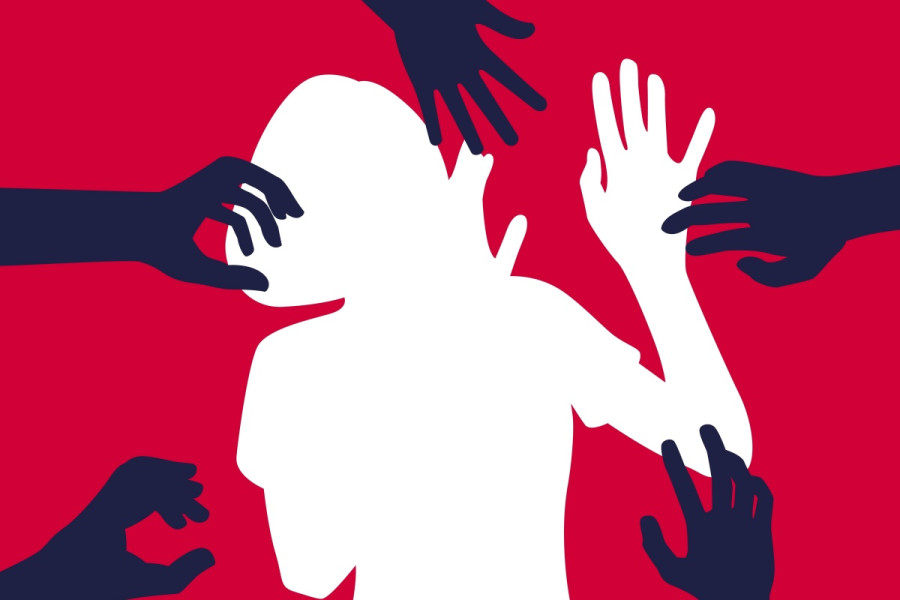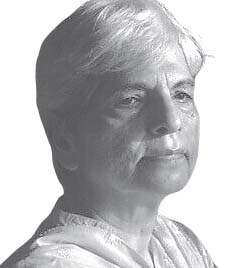Columns
An unsafe country
In Pakistan, money can buy a criminal’s acquittal and traffickers are multimillionaires.
Zubeida Mustafa
How safe a place is Pakistan for young women? According to the human rights ministry, in the last three years, 63,000 cases of violence against women were reported here. This is a rough estimate as not every case of violence is brought to public notice. In fact, it is just the tip of the iceberg.
A fuller picture of the state of human security in Pakistan emerges from the Trafficking in Persons Report issued annually since 2001 by the US State Department. The 2024 report was released recently. From this document, one learns of the complexity and severity of the problems created by criminal trafficking in Pakistan.
Fundamentally, trafficking violates a victim’s constitutional rights to freedom and to live with dignity in a place of her/his choice. The trafficker’s basic motive is monetary gain. In today’s age of neo-liberalism, trafficking has emerged as a global crime involving a transnational mafia conducting a multibillion-dollar trade reminiscent of the slave trade of yore.
Unfortunately, Pakistan as a source, transit and destination country occupies a strategic position in this heinous business. Its inability—or is it unwillingness?—to check unscrupulous elements sustains the mafia that keeps this sordid trade going. It is a lucrative source of illegal earning for the psychopath. As for the mass majority, poverty, gender inequality and illiteracy are the factors that make them so vulnerable.
For unexplained reasons, not many voices have been raised against this crime against humanity. The numbers affected should jolt our conscience. According to a modest estimate, nearly 20,000 persons (80 per cent of them women) are trafficked in Pakistan every year. TIP reports from 2017 to 2021 had showed figures rising from 12,000 to 32,000. In 2022, when a kidnapped girl was recovered in Lahore and taken to court, the police spoke of 40,500 girls having been abducted in Punjab alone. For me, even one woman trafficked is one too many.
It is difficult to understand why state and society accept with equanimity a social evil with profound implications for a country that claims to be an Islamic entity, and which impacts our economy, moral fibre and national image.
The latest TIP Report confirms this trend. It informs us that in the investigating period (2023), the government probed 18,461 cases of which 15,022 were of sex trafficking and 3,439 of forced labour. Of these, only 6,178 were prosecuted, with a measly 10 convictions. The 2023 report had revealed a similar pattern of high numbers being investigated, followed by a drop in the number of prosecutions and a scanty lot being convicted. The punishment meted out is not disclosed. It would not be surprising if no one is imprisoned and a fine of only a few hundred thousand is imposed.
How has the government reacted to this annual finger-pointing exercise by Washington? One response was to neutralise the pressure by setting up the National Commission on Human Rights in 2015, which has the mandate to address suo motu cases of human rights violations, create public awareness and conduct research on human rights matters. It also makes recommendations to the government on related issues. Consequently, Pakistan has amended existing laws and adopted new ones, the most important being the Prevention of Trafficking in Persons Act, 2018.
The same year, the NCHR published the report The Menace of Trafficking/Smuggling: Pakistan’s Response to the Problem. Well documented, it focuses on the problem in its local setting. The law and order machinery dealing with trafficking problems has also been restructured, with the FIA being assigned to see to the international aspects of trafficking.
The creation of the NCHR notwithstanding, the situation vis-à-vis trafficking in Pakistan continues to be horrendous. No one in official circles talks about it. Hence it is left to the TIP Report to expose the truth.
Year after year, TIP reports have reiterated that Pakistan does not meet the minimum standards in several key areas. Inadequacy, inefficiency and shoddiness in investigation is something we are all familiar with. I have experienced it whenever I have had to deal with the police. What leaves one aghast is the charge of the government being hand in glove with the criminals. TIP 2024 states: “For the fifth year, the government did not take adequate action against credible reports of official complicity in trafficking crimes, which also continued to create a culture of impunity and inhibited anti-trafficking efforts. In Sindh, local officials continued to perpetrate bonded labour with impunity in brick kilns and on farms.”
In Pakistan, money can buy a criminal's acquittal and traffickers are multimillionaires. If they also enjoy the blessings of the powers that be then what do they have to worry about?
-Dawn (Pakistan)/ANN




 9.89°C Kathmandu
9.89°C Kathmandu















